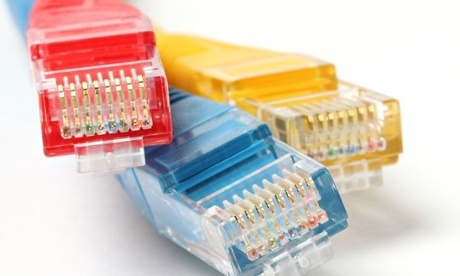US cable giants call on FCC to block cities' expansion of high-speed internet
USTelecom wants to block expansion of popular networks in Chattanooga, Tennessee and Wilson, North Carolina

The US cable industry called on the Federal Communications Commission on Friday to block two cities’ plans to expand high-speed internet services to their residents.
USTelecom, which represents cable giants Comcast, Time Warner and others, wants the FCC to block expansion of two popular municipally owned high speed internet networks, one in Chattanooga, Tennessee, and the other in Wilson, North Carolina.
“The success of public broadband is a mixed record, with numerous examples of failures,” USTelecom said in a blog post. “With state taxpayers on the financial hook when a municipal broadband network goes under, it is entirely reasonable for state legislatures to be cautious in limiting or even prohibiting that activity.”
Chattanooga has the largest high-speed internet service in the US, offering customers access to speeds of 1 gigabit per second – about 50 times faster than the US average. The service, provided by municipally owned EPB, has sparked a tech boom in the city and attracted international attention. EPB is now petitioning the FCC to expand its territory. Comcast and others have previously sued unsuccessfully to stop EPB’s fibre optic roll out.
Wilson, a town of a little more than 49,000 people, launched Greenlight, its own service offering high speed internet, after complaints about the cost and quality of Time Warner cable’s service. Time Warner lobbied the North Carolina senate to outlaw the service and similar municipal efforts.
USTelecom claims the FCC has no legal standing over the proposed expansions and does not have the power to preempt the North Carolina and Tennessee statutes that would prevent them.
“States have adopted a wide range of legislative approaches on how much authority they give local governments to build, own and operate broadband networks. Some states require an election or public hearings before a public project can move forward. Others ask for competitive bids, and still others put restrictions on the terms of service so the public entities bear the same regulatory burdens as private service providers,” said USTelecom.
“States are well within their rights to impose these restrictions, given the potential impact on taxpayers if public projects are not carefully planned and weighed against existing private investment.”
In January this year, the FCC issued the “Gigabit City Challenge” calling on providers to offer gigabit service in at least one community in each state by 2015. The challenge has come amid intense lobbying from cable firms to stop municipal rivals and new competitors including Google from building and expanding high speed networks.
In a statement EPB said: “Communities should have the right – at the local level – to determine their broadband futures.
“The private sector didn’t want to serve everyone, but public power companies like EPB were established to make sure that everyone had access to this critical infrastructure. “
